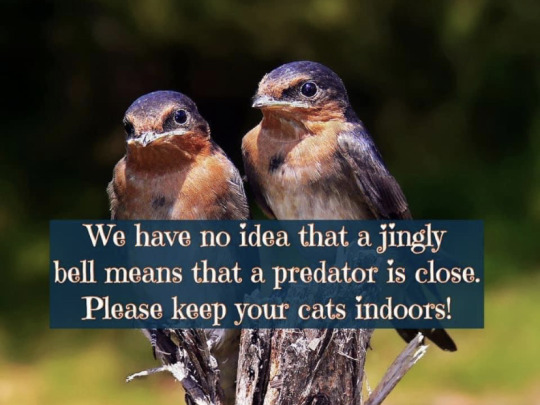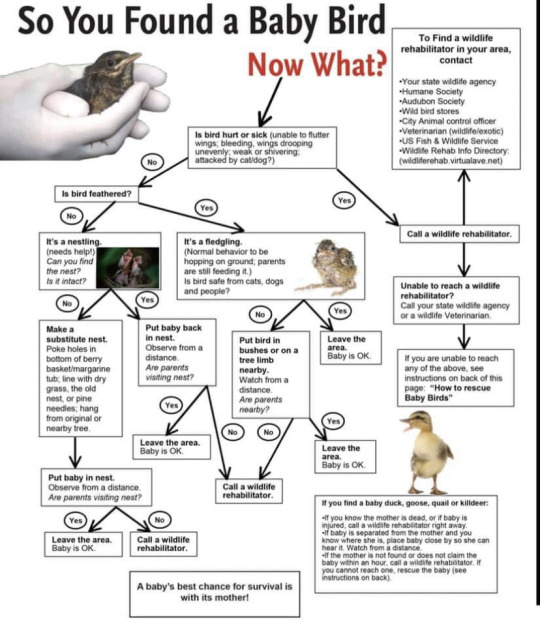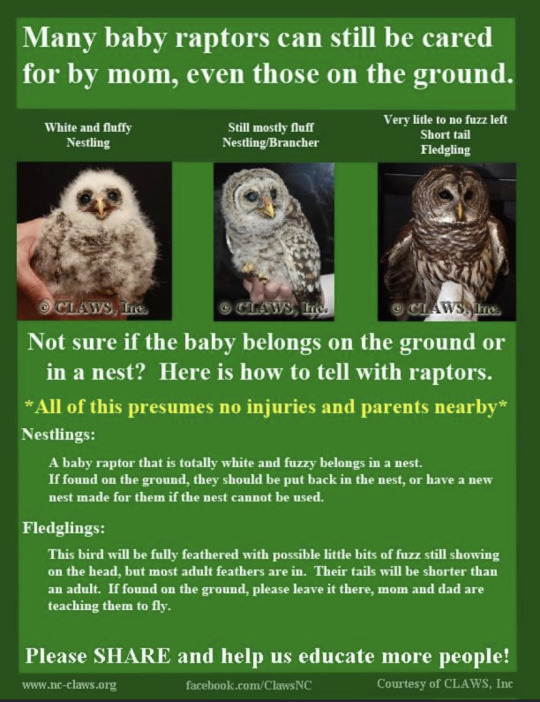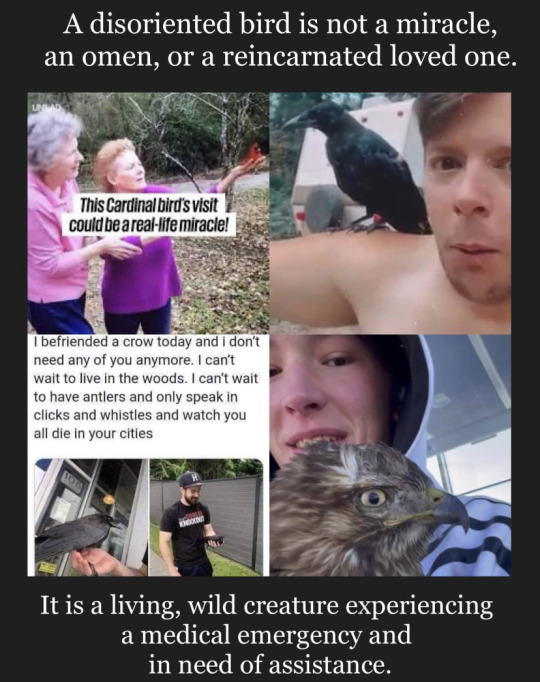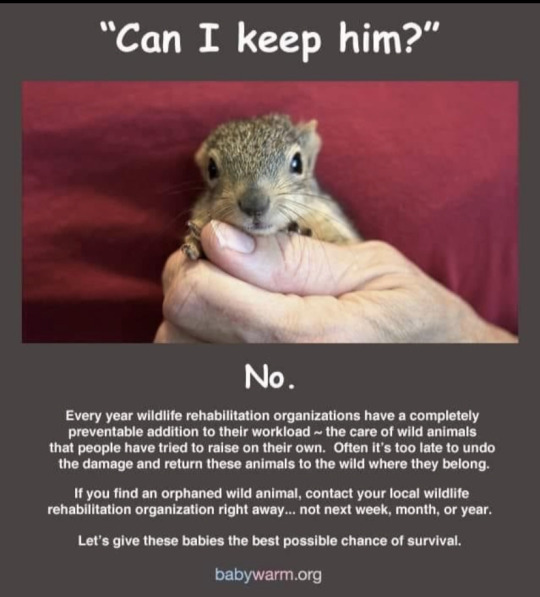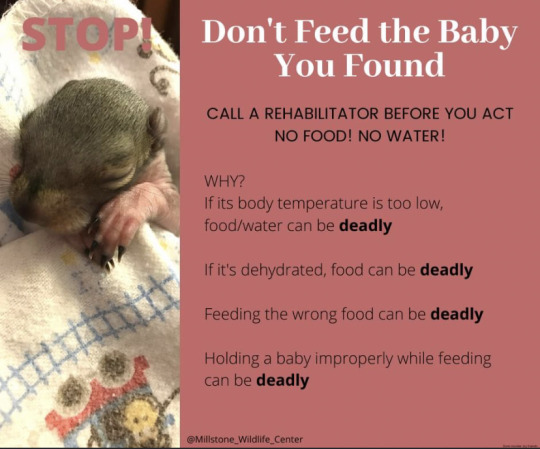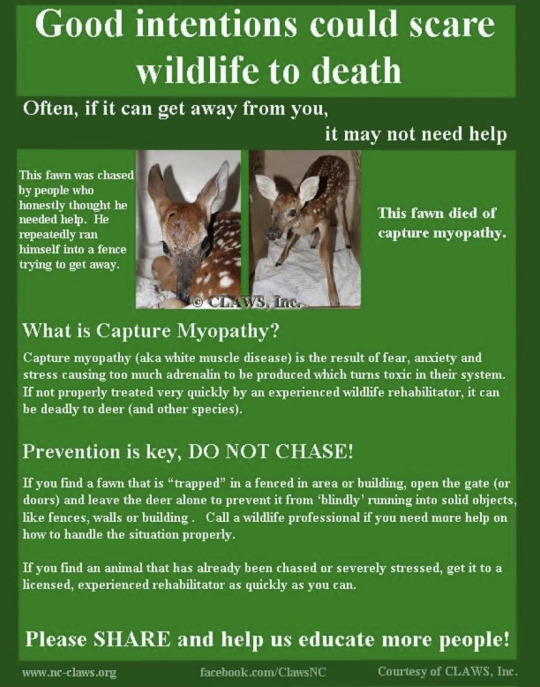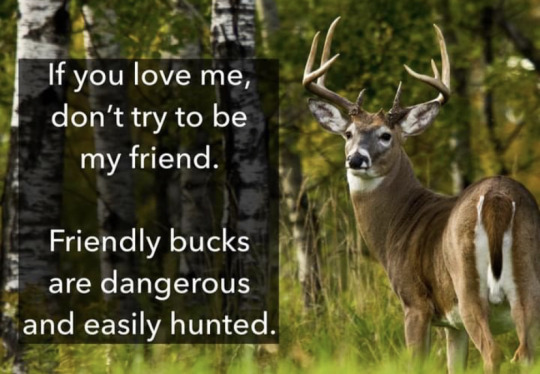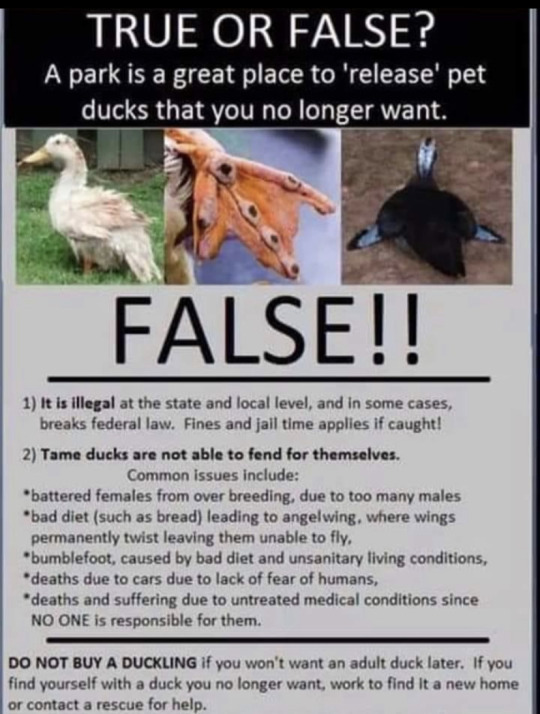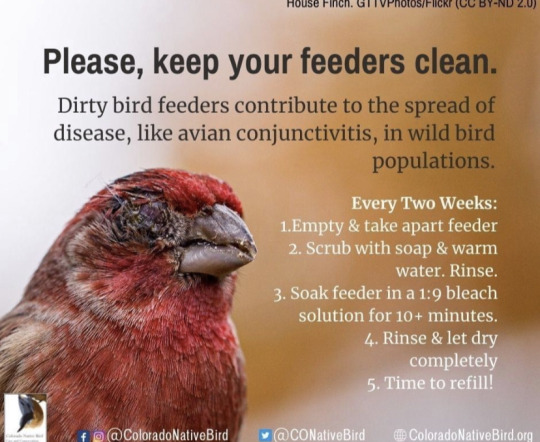Please remember, I am NOT A DOCTOR. If you are genuinely concerned that your pet is ill, seek veterinary attention ASAP! My name is Jay (they/them), and I'm a veterinary technician. This blog is dedicated to information about education, the veterinary profession, and all creatures great and small. My specialties are felines, their behavior, reptile husbandry, and their medical.
Don't wanna be here? Send us removal request.
Text
Alligator Body Language and You, or: How To Know When An Alligator On Social Media is Being Stressed for Views
Alligators are wild animals. Despite the idiotic claims of animal abusers like Jay Brewer, they cannot be domesticated, which means they are always going to react on the same natural instincts they've had for millions of years. Habituated, yes. Tamed, yes. Trained, definitely. Crocodilians can form bonds with people- they're social and quite intelligent. They can solve problems, use tools, and they're actually quite playful. Alligators are also really good at communicating how they're feeling, but to somebody who doesn't spend much time around them, their body language can be a bit mystifying. And it doesn't help when social media influencers are saying shit like this:

That is not what a happy gator looks like.
That's a terrified, furious gator who isn't attacking because the ogre handling her has her in a chokehold. She's doing everything she can to express her displeasure, and he's lying about it because he knows his audience doesn't even know how to think critically about what he's doing. He knows that because his audience doesn't know anything about these animals, he can get away with it. This I think is why I hate him so much- he deliberately miseducates his audience. He knows what he's doing is factually inaccurate, he just doesn't care because attention means more to him than anything else in the world.
Let's change that! Here are two really important lessons for understanding alligator body language on social media.
Lesson 1: Alligators Don't Smile (in fact, most animals don't)
So what's going on in this video? Jay Brewer is aggressively choking his white alligator Coconut while scrubbing algae off of her with a toothbrush. And make no mistake, he is digging into the creature's throat while she is visibly distressed. He claims she's happy- but she's not. He is willfully misrepresenting what this animal is feeling. That's a problem, because people... well, we actually kind of suck at reading other species' body language. The reason for this is that we tend to overlay our own responses on their physical cues, and that's a problem. For example, let's look at an animal with a really similar face to ours, the chimpanzee. Check out Ama's toothy grin!

Wait, no. That's not a happy smile. That's a threat display. When a chimpanzee "smiles," it's either terrified and doing a fear grimace, or it's showing you its teeth because it intends on using them in your face.
How about a dog? Look at my smiling, happy puppy!
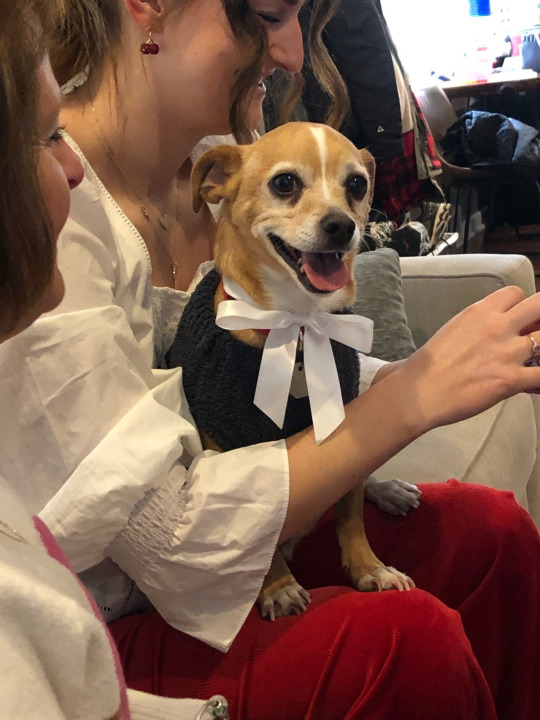
Oh wait no, this is a picture of Ryder when he was super overwhelmed by noise and people during a holiday party. He'd hopped up in my sister's lap to get away from stuff that was happening on the floor and was panting quite heavily. See the tension in the corners of his mouth and his eyes? A lot of the time when a dog "smiles," the smile isn't happy. It's stress! Why Animals Do The Thing has a nice writeup about that, but the point is, our body language is not the same as other species. And for reptiles, body language is wildly different.
For instance, look at these two alligators. Pretty cute, right? Look at 'em, they're posing for a Christmas card or something! How do you think they're feeling?

Well, I'll tell you how the normal one is feeling. He's annoyed! Why is he annoyed? Because the albino just rolled up, pushed another gator off the platform, and is trying to push this guy, too. I know this because I actually saw it happen. It was pretty funny, not gonna lie. He's not gaping all the way, but he was hissing- you can actually see him getting annoyed in the sequence I took right before this shot. Look at him in this first shot here- he's just relaxing, and you can see he isn't gaping even a little bit.
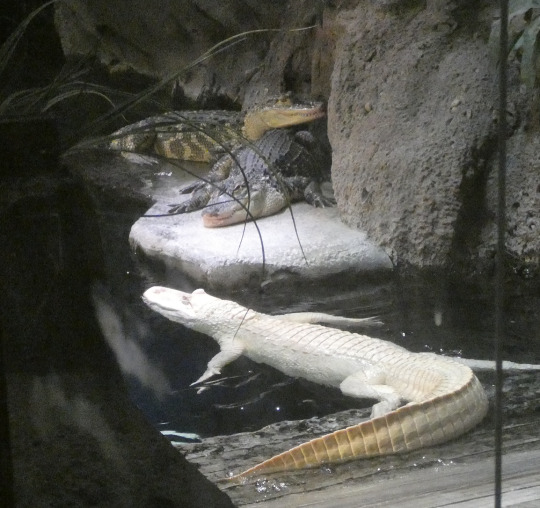

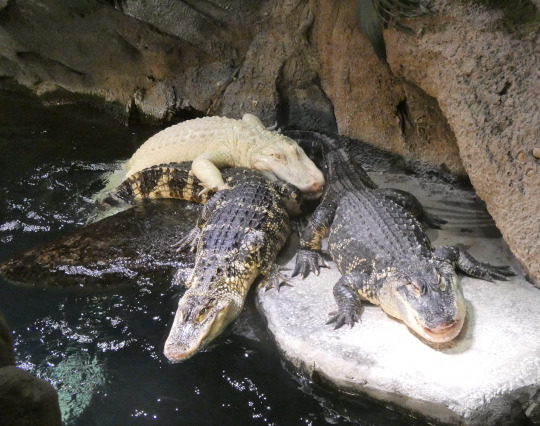
By the end, he's expressing displeasure, but not enough to actually do anything about it. He's annoyed, but he's comfy and that's where one of the best basking areas is, so he'll put up with it.
Reptiles open their mouths wide for a lot of reasons, but never because they are actively enjoying a sensation. Unless they're eating. No reptile smiles- they can't. They don't even have moveable lips. If a reptile is gaping, it's doing so because:
It is doing a threat display.
It is making certain vocalizations, all of which are threats. Alligators are one of the rare reptiles that do regularly vocalize, but most of their calls aren't made with a wide open mouth.
It is about to bite something delicious or somebody stupid. Check out this video- virtually all of the gaping here is anticipatory because these trained gators know darn well that the bowl is full of delicious snacks. (I have some issues with Florida's Wildest, but the man knows how to train a gator AND he is honest about explaining what they're doing and why, and all of his animals are healthy and well-cared for, and he doesn't put the public or his staff at risk- just himself.)
youtube
It's too hot and it has opened its mouth to vent some of that heat and thermoregulate. This is the main reason why alligators will often have their mouths part of the way open, but sometimes they'll open all the way for thermoregulation. This is what a thermoregulatory gape looks like- usually it's not all the way open, kinda more like < rather than V, but you can't say that 100% of the time. Additionally, a thermoregulatory gape... typically happens when it's hot out. If they're inside, maybe they've been under their basking light for too long. Heat's the dominant factor, is what I'm getting at.
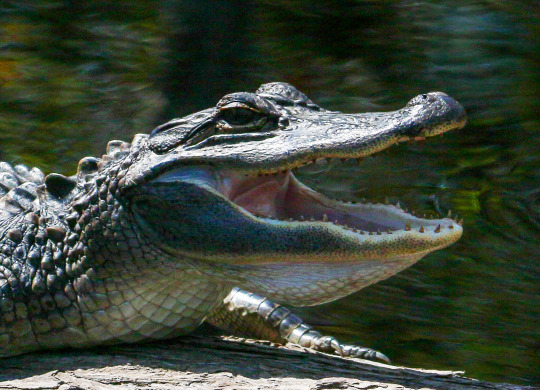
There is another reason that a captive crocodilian might be gaping, and that's because it's doing so on command. Some places have their gators trained to gape on cue, like St. Augustine Alligator Farm and other good zoos. They have the animals do this in presentations that are genuinely educational. They ask the animals to open their mouths so that they can show off their teeth and demonstrate how their tongues seal off the back of their mouth. They'll also do it as part of routine healthcare, because looking at their teeth is important.
In this case, the animals aren't gaping because they're stressed, they're gaping because they know they're gonna get a piece of chicken or fish if they do it. And what's more, they're doing it on cue. They have a specific command or signal that tells them to open wide. It's not an instinctive response to a situation. It's trained. If the animal provides the behavior after a cue, the situation is much less likely to be negatively impactful.
It's also important to remember that there's a difference between a partially open mouth and a gape! As discussed above, alligators will often have their mouths a little bit open just to maintain temperature homeostasis. It helps them stay comfy, temperature-wise. These guys are all doing thermoregulatory open-mouthed behavior- that slight open and relaxed body posture is a dead giveaway. (That and it's the hottest spot in the enclosure.)
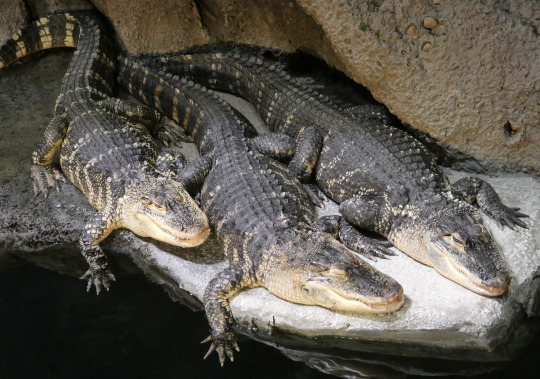
Lesson 2: A Happy Gator Is A Chill Gator
So if alligators don't smile or have facial expressions other than the :V that typically signifies distress, how else can you tell how they're feeling? One way is stillness. See, alligators subscribe to the philosophy of if it sucks... hit da bricks.

Basically, if they hate it, they'll leave. Unless, y'know, somebody has their meaty claws digging into their throat or is otherwise restraining them. (Restraint isn't always bad, btw. Sometimes the animal is going through a medical thing or needs to be restrained for their safety- which a responsible educator will explain.)
Let's look at a very similar scenario, in which a captive alligator is getting his back scrubbed.
As you can see, it's quite different. First, he's not being restrained at all. Second, look at how relaxed he is! He's just chilling there vibing! He could simply get up and leave if he wanted to, because he's not being held. Towards the end of the video, as he lifts his head, you can see that his respiratory rate is very even as his throat flutters a bit. I'm not sure what this facility is, so I can't comment on care/general ethics, but like. In this specific case, this is an alligator enjoying being scrubbed! And you can tell because he's not doing anything. A happy gator is content to be doing what they're doing.
Why Should I Listen To You?
Now, you should ask yourself, why should you listen to me? Why should you trust me, who does not own an alligator, versus Jay Brewer, who owns several?
Well, first off, there's no profit for me in telling you that what you're seeing on social media is in fact not what you're being told you're seeing. I'm not getting paid to do this. That's the thing with people who make social media content. The big names aren't doing it just for fun. They're doing it for money. Whether that's profit through partnerships or sponsorships, or getting more people to visit their facilities, or ad revenue, you can't ignore the factor of money. And this is NOT a bad thing, because it allows educators to do what they're passionate about! People deserve to be paid for the work that they do!
But the problem starts when you chase the algorithm instead of actually educating. A "smiling" alligator gets the views, and if people don't know enough to know better, it keeps getting the views. People love unconventional animal stories and they want those animals to be happy- but the inability to even know where to start with critically evaluating these posts really hinders the ability to spread real information. Like, this post will probably get a couple hundred notes, but that video of Coconut being scrubbed had almost 400,000 likes when I took that screenshot. Think about how many eyeballs that's reached by now. What I'm saying here is that it's just... really important to think critically about who you're getting your information from. What do dissenters say in the comments? What do other professionals say? You won't find a single herpetologist that has anything good to say about Prehistoric Pets, I can tell you that right now.
Another reason you can trust me is that my sources are not "just trust me bro," or "years of experience pretending my pet shop where animals come to die is a real zoo." Instead, here are my primary sources for my information on alligator behavior:
Dragon Songs: Love and Adventure among Crocodiles, Alligators, and Other Dinosaur Relations- Vladimir Dinets
The Secret Social Lives of Reptiles- J. Sean Doody, Vladimir Dinets, Gordon M. Burghardt
Social Behavior Deficiencies in Captive American Alligators (Alligator mississippiensis)- Z Walsh, H Olson, M Clendening, A Rycyk
Social Displays of the American Alligator (Alligator mississippiensis)- Kent Vliet
Social Signals and Behaviors of Adult Alligators and Crocodiles- Leslie Garrick, Jeffery Lang
Never smile at a crocodile: Gaping behaviour in the Nile crocodile at Ndumo Game Reserve, South Africa- Cormac Price, Mohamed Ezat, Céline Hanzen, Colleen Downs (this one's Nile crocs, not American alligators, but it's really useful for modeling an understanding of gape behaviors and proximity)
Thermoregulatory Behavior of Captive American Alligators (Alligator mississippiensis)- Cheryl S. Asa, Gary D. London, Ronald R. Goellner, Norman Haskell, Glenn Roberts, Crispen Wilson
Unprovoked Mouth Gaping Behavior in Extant Crocodylia- Noah J. Carl, Heather A. Stewart, Jenny S. Paul
Thank you for reading! Here's a very happy wild alligator from Sanibel for your trouble.
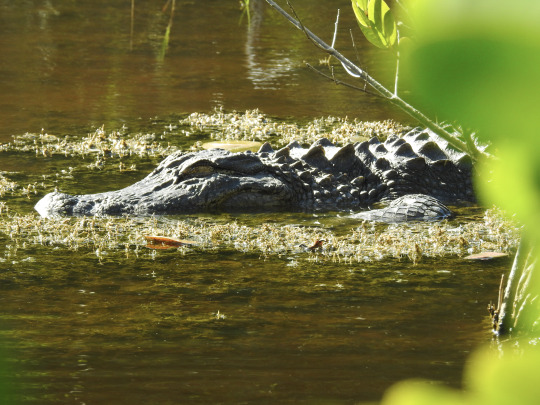
37K notes
·
View notes
Note
The formatting got all jacked on this post :T
Below is a better formatted version. Sorry for the inconvenience!
Ahahhahhhhaahhh you poor naive FOOL!
I'm just kidding - we're happy to have you back in the field!
But I won't lie to you, the journey to vet school is butts. I'm still on it, still wanting to go the distance, but it's stiiillll butts.
So GT, I’m gonna give you a bulleted list of what I think are the most important things you need to know before and while applying for veterinary school starting in the 2024 cycle.
Set up an account at VMCAS (Veterinary Medical College Application Service) a. The site doesn’t open until January (when the application cycle for 2024 starts), but keep the site bookmarked and check back frequently so you can stay updated.
On that note, check out AAVMC (American Association of Veterinary Medical Colleges) a. Here you can get the lowdown on ALL the veterinary schools, which can inform your decision on which to apply to
The most important information you are going to want to focus on; a. DUE DATES - for all applications, fees, and coursework i. Put them in your calendar, on sticky notes, on your forehead whatever you need to do to not miss them. Once they’re passed, you’re out of luck b. Minimum prerequisite course requirements (coursework and grades) i. Also, know that prerequisite coursework expires after ten years. It's BS and I’m dealing with that right now ugh c. Letters of recommendations i. You will need at least three - no exceptions - and at least one needs to come from a licensed veterinarian d. All your previous academic records, relevant experience, volunteer work, and anything else that is even slightly animal/veterinary related that can beef up your application i. You will have to dig back through your old transcripts (you’ll need to get an official one) and get all your old coursework - it is very important to get your grades and courses correct/exact on the application ii. They’re gonna ask for very specific dates, hours, and numbers so just do the best you can in documenting this
The next part of the application(s) is all about personal essays. The standard application has its own base essays and then each individual application for each school has its own essays. a. Spend the most time on this. Every admissions person I have talked to says that the essays are where it’s at. Try to make yourself stand out from the crowd - explain your reasonings for wanting to be a vet beyond “I like animals,” and do your best to tell your story.
Sidenote: If you plan to apply to the two colleges in Texas, there is an entirely DIFFERENT application called the TMDSAS (Texas Medical & Dental Schools Application Service) you will have to make an account for, fill out, have your letter of recommendation sent to, and pay for. It's very annoying because Texas thinks it's just so special. (I live in Texas I can say these things)
I wanna say that’s everything? I’m sure there is more, but the listed websites help a lot too.
I also want to say, don’t get discouraged. Most people don’t get in on their first try. Not saying you won’t! It’s just statistics. So if you don’t get in, keep trying! Lord knows we need more vets!
Best of luck to you and if you need any more help, you know where to find me!
Hey Jay! Recently I have found myself back in the world of veterinary medicine after taking a few years to decide what I wanted to do and finish my undergrad degree in Management instead of Animal Science which is what I was pursuing when I started my college journey. At the age of 27 (for the next two months) I have decided that I do in fact want to pursue my dream of applying to vet school and I have been trying to connect with folks who have experienced applying and I was wondering if you would be open to sharing your experience with me. Hope you're doing well recovering your knee! Talk soon,
GT
Ahahhahhhhaahhh you poor naive FOOL!
I'm just kidding - we're happy to have you back in the field!
But I won't lie to you, the journey to vet school is butts. I'm still on it, still wanting to go the distance, but it's stiiillll butts.
So GT, first things first, RESEARCH YOUR SCHOOLS. You gotta know their minimum requirements, their prerequisites, their DUE DATES, their additional fees (it's all about additional fees), and anything else you can get from their websites, emails, and VMCAS.
Ahahhahhhhaahhh you poor naive FOOL!
I'm just kidding - we're happy to have you back in the field!
But I won't lie to you, the journey to vet school is butts. I'm still on it, still wanting to go the distance, but it's stiiillll butts.
So GT, I’m gonna give you a bulleted list of what I think are the most important things you need to know before and while applying for veterinary school starting in the 2024 cycle.
Set up an account at VMCAS (aka Veterinary Medical College Application Service) The site doesn’t open until January (when the application cycle for 2024 starts), but keep the site bookmarked and check back frequently so you can stay updated.
On that note, check out AAVMC (American Association of Veterinary Medical Colleges) Here you can get the lowdown on ALL the veterinary schools, which can inform your decision on which to apply to
The most important information you are going to want to focus on; 1. DUE DATES - for all applications, fees, and coursework a. Put them in your calendar, on sticky notes, on your forehead - whatever you need to do to not miss them. Once they’re passed, you’re out of luck 2. Minimum prerequisite course requirements (coursework and grades) a. Also, know that prerequisite coursework expires after ten years. It's BS and I’m dealing with that right now ugh 2. Letters of recommendations
You will need at least three - no exceptions - and at least one needs to come from a licensed veterinarian
All your previous academic records, relevant experience, volunteer work, and anything else that is even slightly animal/veterinary related that can beef up your application
You will have to dig back through your old transcripts (you’ll need to get an official one) and get all your old coursework - it is very important to get your grades and courses correct/exact on the application
They’re gonna ask for very specific dates, hours, and numbers so just do the best you can in documenting this
The next part of the application(s) is all about personal essays. The standard application has its own base essays and then each individual application for each school has its own essays.
Spend the most time on this. Every admissions person I have talked to says that the essays are where it’s at. Try to make yourself stand out from the crowd - explain your reasonings for wanting to be a vet beyond “I like animals,” and do your best to tell your story.
Sidenote: If you plan to apply to the two colleges in Texas, there is an entirely DIFFERENT application called the TMDSAS (Texas Medical & Dental Schools Application Service) you will have to make an account for, fill out, have your letter of recommendation sent to, and pay for. It's very annoying because Texas thinks it's just so special. (I live in Texas I can say these things)
I wanna say that’s everything? I’m sure there is more, but the listed websites help a lot too.
I also want to say, don’t get discouraged. Most people don’t get in on their first try. Not saying you won’t! It’s just statistics. So if you don’t get in, keep trying! Lord knows we need more vets!
Best of luck to you and if you need any more help, you know where to find me!
#submission#askavettech#veterinarian#veterinary school#vet school#vet school application#reblog#formatting issue#sorry for the reblog#just trying to make this more legible
7 notes
·
View notes
Note
How do vets remove teeth with precision?
So, I collect bones, and I recently got this great boar skull, and I want to take the teeth out of the jaw to remove them, the only problem is, this boar skull still has the connective tissue connecting the molars and premolars to the jaw. I’ve been wondering how vets remove teeth, especially herbivore teeth, without damaging the jaw. How do vets manage to get it out with not only the connections to the skull, but also all the extra flesh around it?
Well, I wish I could tell you that vets removed teeth with exact precision - like sliding a knife from a knife block - but in a living animal that’s just not the case.
As you can see in the feline examples below, the root of each tooth goes faaaar below the gumline and what we can actually see.


In living animals, there are nerves, soft gum tissue, sinewy connective tissue, and blood vessels to contend with when extracting a tooth. Plus, the teeth that are being extracted are usually diseased, already broken, or in some other way unhealthy. Not to mention, jaws are delicate. Aggressively yanking at a tooth that is still attached can cause the jaw (especially the lower jaw or mandible) to fracture. Veterinarians must be wary of all these factors when extracting teeth.
So, with all of this in mind, most veterinarians use drills, just like you see at your local human dentist while extracting teeth. Oral surgery done on pets is just like oral surgery done on humans, be it on a smaller scale.
Now, I am most versed in canine and feline dental extractions, so I don’t know if herbivore dentals are the same. That being said, I am not aware of domestic herbivores generally getting dental surgery. In zoo settings, I’m sure it happens, but in the farm and pet sector, I have not seen it. Since you are dealing with a skull, the best course of action would be to cold boil it to remove any remaining connective tissue. There is an excellent book called Protocols for Cleaning and Articulating Large Mammal Skeletons which goes over a lot of techniques for cleaning skeletons that you may find helpful!
8 notes
·
View notes
Note
Hey Jay! Recently I have found myself back in the world of veterinary medicine after taking a few years to decide what I wanted to do and finish my undergrad degree in Management instead of Animal Science which is what I was pursuing when I started my college journey. At the age of 27 (for the next two months) I have decided that I do in fact want to pursue my dream of applying to vet school and I have been trying to connect with folks who have experienced applying and I was wondering if you would be open to sharing your experience with me. Hope you're doing well recovering your knee! Talk soon,
GT
Ahahhahhhhaahhh you poor naive FOOL!
I'm just kidding - we're happy to have you back in the field!
But I won't lie to you, the journey to vet school is butts. I'm still on it, still wanting to go the distance, but it's stiiillll butts.
So GT, first things first, RESEARCH YOUR SCHOOLS. You gotta know their minimum requirements, their prerequisites, their DUE DATES, their additional fees (it's all about additional fees), and anything else you can get from their websites, emails, and VMCAS.
Ahahhahhhhaahhh you poor naive FOOL!
I'm just kidding - we're happy to have you back in the field!
But I won't lie to you, the journey to vet school is butts. I'm still on it, still wanting to go the distance, but it's stiiillll butts.
So GT, I’m gonna give you a bulleted list of what I think are the most important things you need to know before and while applying for veterinary school starting in the 2024 cycle.
Set up an account at VMCAS (aka Veterinary Medical College Application Service) The site doesn’t open until January (when the application cycle for 2024 starts), but keep the site bookmarked and check back frequently so you can stay updated.
On that note, check out AAVMC (American Association of Veterinary Medical Colleges) Here you can get the lowdown on ALL the veterinary schools, which can inform your decision on which to apply to
The most important information you are going to want to focus on; 1. DUE DATES - for all applications, fees, and coursework a. Put them in your calendar, on sticky notes, on your forehead - whatever you need to do to not miss them. Once they’re passed, you’re out of luck 2. Minimum prerequisite course requirements (coursework and grades) a. Also, know that prerequisite coursework expires after ten years. It's BS and I’m dealing with that right now ugh 2. Letters of recommendations
You will need at least three - no exceptions - and at least one needs to come from a licensed veterinarian
All your previous academic records, relevant experience, volunteer work, and anything else that is even slightly animal/veterinary related that can beef up your application
You will have to dig back through your old transcripts (you’ll need to get an official one) and get all your old coursework - it is very important to get your grades and courses correct/exact on the application
They’re gonna ask for very specific dates, hours, and numbers so just do the best you can in documenting this
The next part of the application(s) is all about personal essays. The standard application has its own base essays and then each individual application for each school has its own essays.
Spend the most time on this. Every admissions person I have talked to says that the essays are where it’s at. Try to make yourself stand out from the crowd - explain your reasonings for wanting to be a vet beyond “I like animals,” and do your best to tell your story.
Sidenote: If you plan to apply to the two colleges in Texas, there is an entirely DIFFERENT application called the TMDSAS (Texas Medical & Dental Schools Application Service) you will have to make an account for, fill out, have your letter of recommendation sent to, and pay for. It's very annoying because Texas thinks it's just so special. (I live in Texas I can say these things)
I wanna say that’s everything? I’m sure there is more, but the listed websites help a lot too.
I also want to say, don’t get discouraged. Most people don’t get in on their first try. Not saying you won’t! It’s just statistics. So if you don’t get in, keep trying! Lord knows we need more vets!
Best of luck to you and if you need any more help, you know where to find me!
7 notes
·
View notes
Text
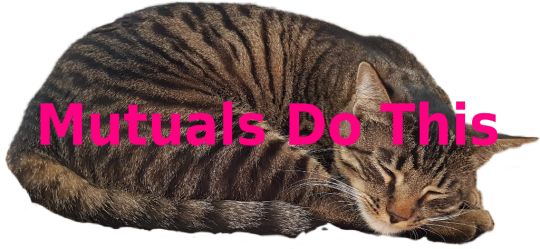
247K notes
·
View notes
Note
hi,
my cat was diagnosed with hyperthyroidism today. the onset of the symptoms coincided exactly with her starting fluoxetine. i saw a couple of human cases where ssri medications like fluoxetine can cause hyperthyroidism, but then the vet that saw my cat today essentially called me crazy for asking if that could also happen in cats.
if it does, i feel so awful. like i wanted her to go on the medication because she was so angry and fearful and volatile, and it helped her behaviour, but i’m just so worried that it’s my fault that she’s sick.
i know hyperthyroidism can happen in older cats, and she is 13, but it appearing so suddenly (she was perfectly physically healthy before) and with the fluoxetine feels really bizarre if it is just a horrible coincidence.
i’m not expecting you to make a diagnosis or anything, but if you have any advice or resources I would really appreciate it.
thank you
Firstly, I am SO sorry for how late this is and SO sorry your kitty is experiencing health issues.
I hope things are better now, but I still like to talk about your submission.
---
Now; DON'T YOU DARE BLAME YOURSELF! Cats are amazing at hiding symptoms and pain because they are small enough to be preyed upon by larger animals. It's a survival instinct that they still use even when they're cared for and pampered by their humans. This can make proper diagnosis of cats very difficult. Diagnosis in veterinary medicine is generally difficult simply because our patients can't tell us if something hurts or how they feel. We have to diagnose using our best tools, diagnosis, knowledge, and intuition.
But sometimes, it comes down to the process of elimination. And I have a feeling that may be what is going on here.
I also want to quickly say that I feel the veterinarian who was talking with you, handled this situation poorly. You were concerned about your cat so you brought up a question! They should have explained their reasoning, not called you crazy. That's poor communication and someone who doesn't want to take your concerns into consideration as a client and pet parent. I'm so very sorry this happened to you and this vet seems like a butthead.
---
So, in vet med, we use Fluoxetine in cats for anxiety, fear, aggression, and inappropriate behavior (like urinating outside the litterbox chronically). It's a very useful medication! And if your cat benefited from it, that's amazing!
A cat that is constantly stressed will undoubtedly become ill. Think about how when we're stressed, we're more likely to get sick. Same principle here. So if we can make the patient calmer and feel more at ease, that's the goal. Comfort and symptom management are a big part of veterinary medicine.
Now, I had never heard that fluoxetine can cause hypertension, but I don't know how people work, so I don't have that reference point. A quick Google search says that SSRIs can raise blood pressure in humans - so you're right.
---
So, because I have not heard about fluoxetine corresponding with hypertension, I did some research:
1. R.L. Stepien. Feline Systemic Hypertension: Diagnosis and Management. Journal of Feline Medicine and Surgery. 13(1): 35-43. DOI:https://doi.org/10.1016/j.jfms.2010.11.008
Link: https://journals.sagepub.com/doi/epub/10.1016/j.jfms.2010.11.008
2. A. Miele, L. Sordo, & D.A. Dunn-Moore. Feline Aging: Promoting Physiological and Emotional Well-Being. Veterinary Clinics: Small Animal Practice. 50(4): 719-748. DOI:https://doi.org/10.1016/j.cvsm.2020.03.004
(Put the DOI into SciHub to read the paper.)
Let's first talk a little about hypertension. More commonly known as high blood pressure, hypertension is when the pressure in the blood vessels is too high.1 This causes strain on the entire body and can cause damage to multiple organ systems.1,2
Per both papers, one of the symptoms of hypertension can be behavioral changes. There could be a chance that your cat was exhibiting these behaviors because of undiagnosed hypertension.2
Hypertension, as you pointed out, is most commonly seen in our aging cats; "...13% of apparently healthy cats aged more than 9 years are hypertensive."2 "In one study that included seven cats with idiopathic hypertension, it appeared that most or all of these cats were >12 years of age."1 Hypertension also usually goes hand in hand with kidney and thyroid issues - which are also very common in aging cats; "Approximately 20–60% of feline CKD [chronic kidney disease] patients are hypertensive...hypertension in hyperthyroid cats is likewise variable, but is considered to be approximately 10–20%."1 Though there are other more uncommon causes; "Other diseases or drugs can, less commonly, cause hypertension, including hyperaldosteronism, DM, acromegaly, hyperadrenocorticism, and erythropoietin therapy."2
Some other interesting statistics:
"Systemic hypertension:
13% of apparently healthy cats greater than 9 years of age
Less than 25% to 65% with CKD [chronic kidney disease]
10% to 90% with hyperthyroidism"2
"Medical differentials for common behavioral changes in elderly cats
Hypertension
Degenerative disease
Neoplasia
Infection
Metabolic
Pain or inflammation"2
In Promoting Physiological and Emotional Well-Being, there is only one mention of fluoxetine as a treatment for cognitive dysfunction syndrome - basically kitty dementia. Feline Systemic Hypertension: Diagnosis and Management had no mention of the drug.
---
So, it's hard what really happened - I think we'd have to be able to really speak cat to know for sure. Ultimately, what matters now is keeping your kitty comfortable and healthy. And if her care plan includes fluoxetine, in my unprofessional opinion, I think that's okay.
#hypertension#ckd#chronic kidney disease#hyperthyroidism#feline#veterinary medicine#vet tech#research#fluoxetine#askavetech#ask#submission
0 notes
Text
Hey Guys...
I'm very sorry for my lackluster posting over the last *check notes* ouch...essentially two years.
I know I've made this promise before, but I'm going to really try to post regularly. I've got a backlog of asks and cool stuff I'd love to share with everyone.
As for what the hell I've been doing, here's a quick rundown:
I graduated with my Bachelor's in Animal Science last August; very exciting considering how long it took me to get to this point! I was also able to conduct an independent research project and write an undergraduate thesis. A wonderful experience full of lots of work and stress, but, boy, is it rewarding to say, "I'm technically published." (If anyone is interested in talking about research, I'd love to chat!)
With degree in hand, I applied to...a lot...of veterinary schools. And they all rejected me - whomp whomp. But, for a first try, I at least got to speak to some of the schools, so not too bad. Yes, I'm a little upset, but not surprised. So we try again! However, at this point, I need to retake some basic prerequisite classes before I can reapply, so I'm heading toward that. (If you guys have questions about the veterinary school process and how to apply, I'm an open book!)
I have also started working at a new vet clinic! (This is the really fun part!) While I love all creatures under the sun - except ectoparasites, you know what you did - I have some serious knee issues, and wrestling with 150lb dogs isn't so great on the joints. So, last May, I started working at a feline specialty hospital. And I won't lie, I love it so much. My clients, patients, and especially the clinic's live-in blood donor cats are all just wonderful. Because the clinic is feline-oriented, it caters to many feline-specific disease processes - e.g. hyperthyroidism, lymphoma, diabetes mellitus, hypertension, etc. I can't wait to tell you all more about feline diseases, symptoms, diagnoses, and treatments!
Right now, I'm laid up due to knee surgery (like I said, bad knees), so I think I'll have some time to really get going again on this blog.
I hope to talk to you all soon!
-Jay the Vet Tech
5 notes
·
View notes
Note
Do you happen to know if there's a place I could get free vet tech ebooks? I don't have the money for college just yet, but I know this is what I want to do and my library doesn't have any.
Well...
I definitely wouldn't recommend looking up Library Genesis, a completely free service that hosts thousands of books of every kind to download at your convenience. I'd also never point you in the direction of The Internet Archive, which houses one of the largest libraries of written, audio, and visual media on the internet. If you need access to scientific journal articles with paywalls, I would never suggest putting the DOI number into SciHub to obtain access to free PDF copies.
I could never ethically say that these are great resources for anyone in academia or who are looking to learn. I'd never imply that the threshold for entry into the veterinary field is so impossibly high that it is almost unattainable. It's not like we could use all the help we could get.
I'd never say that.
#ask a vet tech#askavettech#veterinary technician#veterinary#resource#how to get resources for free#please use all these resources#they got me through college and i still use them regularly
1 note
·
View note
Photo
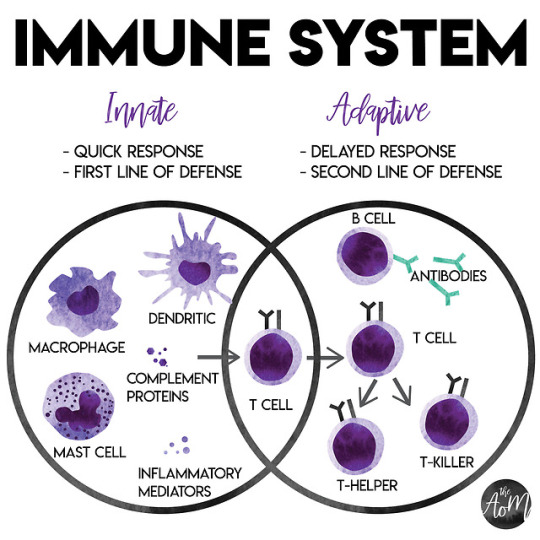
Innate and Adaptive Immunity
There are 2 systems of immunity - innate immunity and adaptive immunity. Thank you @coffeeloveinglazyfox, for the suggestion!
Keep reading
2K notes
·
View notes
Text
HOLY MOLEY! Welcome new friends!
I got up today to nearly 15 new followers. I...wow gang! I can't tell you how much I appreciate the support and interest.
But I don’t want to disappoint anyone, so I gotta be honest with everyone. I am not very active here, and I don't really plan to change that.
I'm FINALLY nearly the end of my undergraduate degree, which is exciting! But it also means that I'm busy constantly. I also haven't been working in a veterinary clinic for a little over a year; a combination of focusing more on school and COVID had me leave my last clinic.
This year I am going to be applying for veterinary school. If you guys would like, I can try and post about that. But I don't want to promise anything and not adhere to it.
So that you all for being here, but I don't know how much you will actually hear from me. Feel free to ask questions about school, technician work, or things along those lines. Remember, I'm not a doctor and cannot diagnose. But otherwise, I will try to answer your questions.
Thank you for sticking around with me through this! It's been a wild few years behind the scenes, and I appreciate you all being so patient with me.
-- Your ever-lurking, but hardly posting friendly neighborhood vet tech
#askavettech#askavettech personal#text post#personal update#thank you all again for being here#i will attempt to post more#but i cannot make any promises
2 notes
·
View notes
Text
The cat, uh, rubbed her vertebrae out.

EWWWWWWWWW
340 notes
·
View notes
Photo
This is a gift.






Presenting ‘Tired of it all Veterinarian Cat’.
6K notes
·
View notes
Text
Someone in the CH Facebook group has a post about their cat who managed to break their foot. Their emergency visit totaled $1,100 and they were going to need a bandage change every weeks for $200 for 6 weeks. She's been complaining about the cost while the vet techs in the group have repeatedly explained why things cost. The vets offered amputation, she can't afford that. A vet tech offered to take in the cat and fix it and rehome it, but they couldn't 100% guarantee the cat wouldn't be euthanized for some reason, so she won't do that either.

I rather expect to get kicked from the group because I went off on her.


I am so pissed. We deal with this bullshit daily. $2500 for a total bill sucks, but honestly that's cheap as hell. Go break a bone without health insurance and tell me how much that ER visit is going to cost out of pocket.
In it for the money. I want to bite her.
2K notes
·
View notes
Text
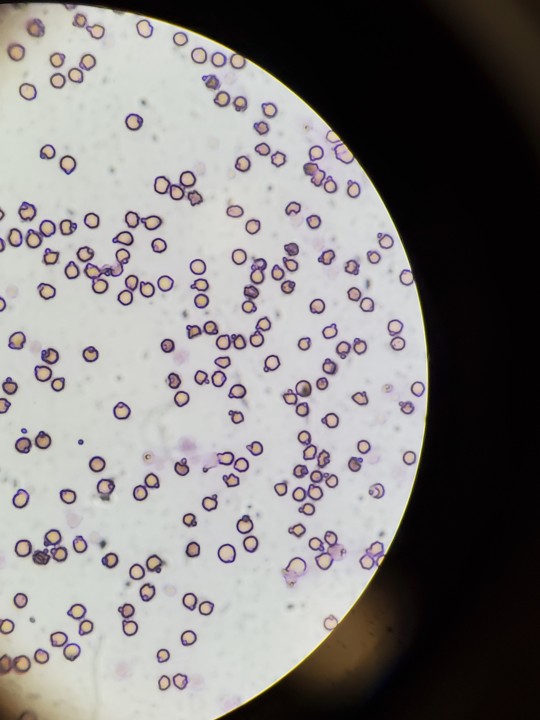
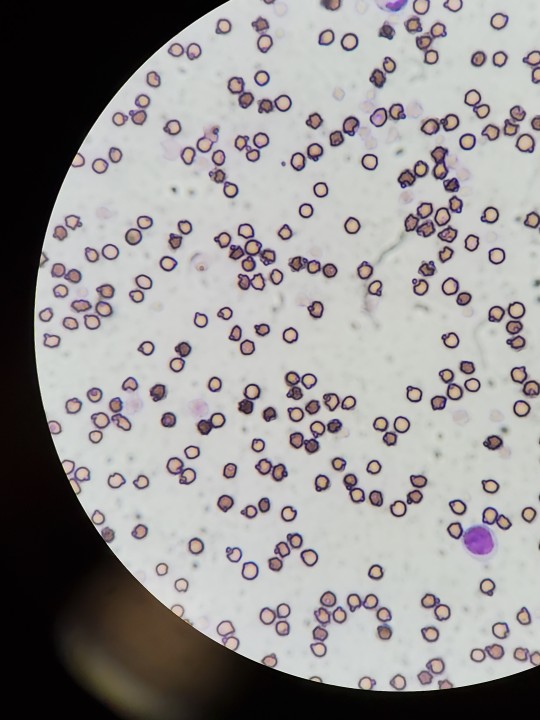
Hmmmn. Those aren't normal RBCs....
Heinz body anemia? Mycoplasma haemofelis?
96 notes
·
View notes
Text

This is about Sci-Hub. yeah we get it.. gatekeep knowledge and protect the interests of capital…
284K notes
·
View notes
